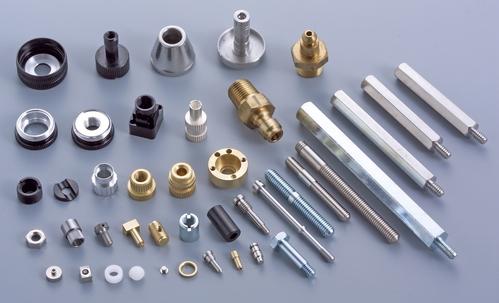Many sectors that demand highly accurate, high-quality, and dependable parts depend on precision turned components. The following nine advantages of adopting precision-turned components in diverse industries.
High-accuracy and Precision:
Modern machines with high accuracy and precision are used to produce precision turned components. The equipment ensures that the items produced are precise and dependable by cutting materials with tolerances as small as a few microns.
Consistency:
Utilizing automated equipment, precision turned components are created, ensuring that each item is uniform in terms of size, shape, and quality. This increases the parts’ dependability, resulting in fewer production mistakes, fewer rejects, and a finished product of superior quality.
Cost-effective:
Precision turned components are manufactured using advanced CNC machines that can produce parts quickly and efficiently, reducing the production time and cost. This cost-effective manufacturing process helps businesses to produce parts at a lower cost, resulting in higher profitability and competitive advantage.
Fast Turnaround Time:
CNC machines enable the quick production of precision turned components, resulting in shorter customer turnaround times. This is especially helpful for companies that need to produce high-quality parts quickly in order to fulfill deadlines.
Versatility:
Precision turned components can be manufactured from a wide range of materials, including steel, aluminum, brass, and titanium. This versatility makes the components ideal for use in a wide range of industries, including aerospace, automotive, medical, and electronics.
Strength and Durability:
High quality manufacturing processes are used to create precision turned components, making them robust, long-lasting, and able to bear significant stress and pressure. They are therefore perfect for usage in sectors that demand durable and dependable components.
Customizable:
Size, shape, and material can all be altered for precision turned components to fit unique specifications. Businesses are now able to make products that specifically cater to the needs of their clients because to this customization capabilities.
Minimal Waste:
A automated technique is used to produce precision turned components, reducing wastage and scrap. This aids companies in lessening their negative effects on the environment, resulting in a more sustainable and ethical production process.
High-Quality Finishing:
Surface treatment, polishing, and coating are all excellent ways to finish precision turned components. The parts’ professional and constant appearance is ensured by this high-quality finishing, which raises their worth and dependability.
As a result, using precision turned components in industries has several advantages, such as high accuracy and precision, consistency, cost-effectiveness, quick turnaround, adaptability, strength and durability, customisation, little waste, and high-quality finishing. These advantages aid companies in streamlining their production procedures, producing durable products, lowering costs, and enhancing their competitive advantage.


